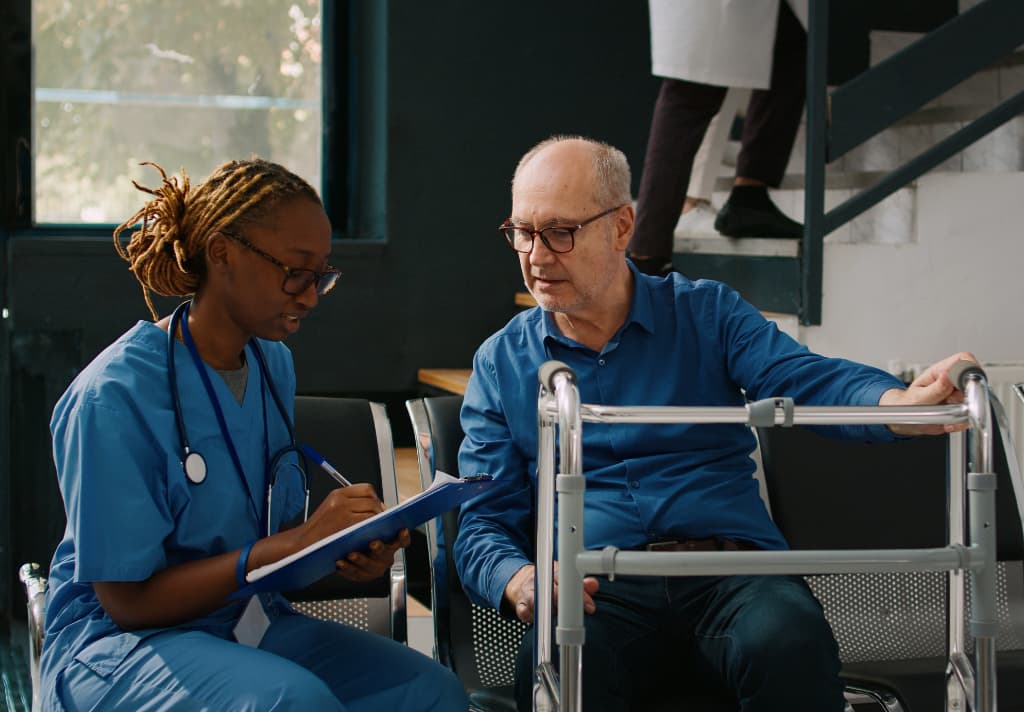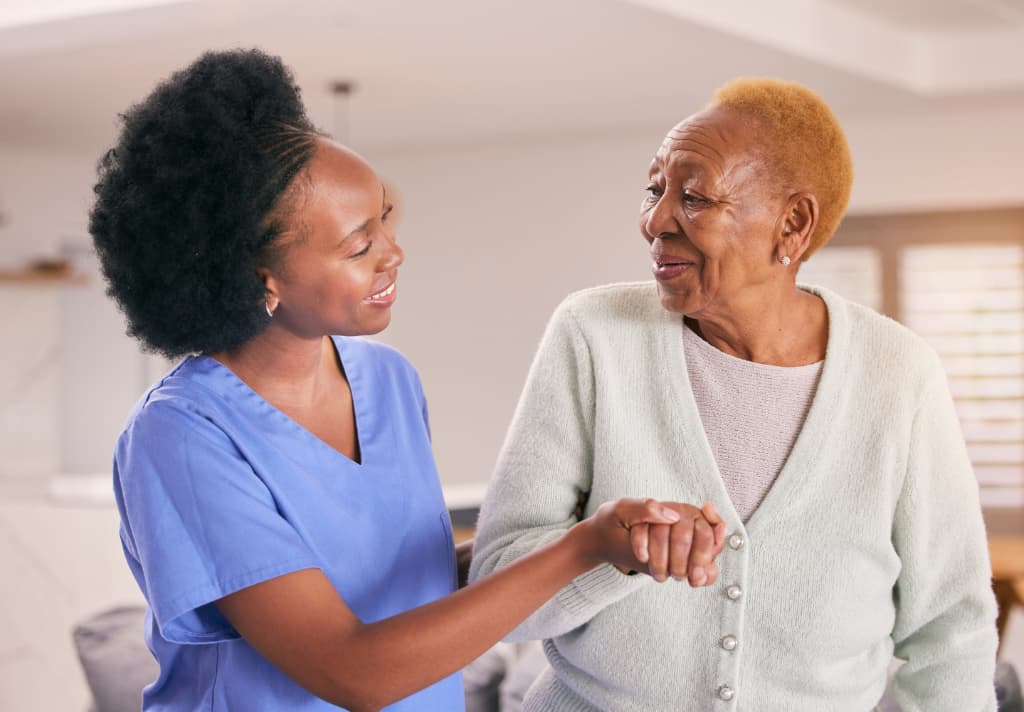Introduction:
Every day as I go through our residential homes, I remember the reasons for my decision. What I have learned on my path from pharmacy to clinical governance is that ageing is mainly about adapting, keeping your dignity and thriving in ways you may find new.
Short on time? Watch our quick video for key insights!
Even as our loved ones get older, their memories continue to influence us as they share a new tale. Now is a time for each person to feel respected, happy and free to do the things they can for themselves. As we age, we don’t just go slower; we discover how to make our lives better. We’ll look at ways to bring joy and keep individuals connected in this blog article. Cutting-edge help and simple acts of kindness can help anyone make their daily routine more gratifying and stronger.
Assistive Technologies:
One of the most exciting developments in care is the advent of assistive technologies. Envisage a world where you can say a few words to turn on the lights or lower the thermostat—and there’s no struggle. Because of assistive technology, individuals now feel safer and can keep their independence. Your home can understand your needs, your wearable devices stand by to keep you safe and virtual assistants supply helpful information and remind you patiently. This isn’t only about being convenient; it’s about being free. Being able to remain in their own homes, be safe and not be far from important people.

Additionally, virtual assistants powered by artificial intelligence can offer companionship, engage in conversations, and assist with tasks such as setting reminders for medications, making phone calls, and even providing entertainment. By leveraging these technologies, we can enable individuals to remain in their own homes for longer, maintaining their independence and familiar surroundings, while ensuring their safety and well-being.
Accessible Home Modifications:
Home isn’t simply a building; it’s an emotion too. If we consider small updates, we can transform it into a space that is both safe, supportive and independent. Think of a bathroom with reliable grab bars and showers that anyone can step into with ease. Doors that wheelchairs fit through, soft floors for walkers and kitchen cabinets that are easy for everyone to use. The changes around me tell me, “You are in a safe place. Being here is your right. Everything I love about my home is because it adapts to me over the years”.
Replacing stairs with ramps or installing stairlifts can make multi-level homes more accessible. Other adaptations may include adjustable beds that can be raised or lowered electronically, walk-in showers with slip-resistant flooring and built-in seating, and lever-style door handles that are easier to grip and operate. By making these changes, we can create a home environment that is tailored to the specific needs of each individual, empowering them to perform daily tasks independently and with confidence.
Engaging Social Programmes:
Loneliness robs us of happiness, our health and the time we could spend with others. With each other, we can push it out. Try to picture trips to vibrant gardens or group book readings that bring lots of laughter. See the children showing grandpa exactly what modern life is like as grandma gives them life advice. Coffee sessions online with friends who live far or creative painting in any age group are more than pastimes. They’re lifelines. They help link hearts and reassure us: You have someone by your side.

Personalised Fitness and Nutrition:
Looking after physical health is key for individuals to remain on their feet and healthy. Traditionally made fitness and nutrition plans may not always work for everyone. We should create fitness plans that fit each person, based on their capabilities, diseases and what they like to do.
For example, you can do chair-based exercises or routines that mainly work on strength, balance and flexibility. Physical therapists and occupational therapists can help you do your exercises properly and safely. Taking care of food as well as exercise is necessary for staying healthy and strong.
Working with nutritionists to prepare separate meals, keeping in mind food allergies, ongoing diseases and culture, will provide the right meals for their health. Choosing to eat plenty of fruits, vegetables, lean proteins and whole grains and eating fewer processed foods and sugary snacks, helps support you. If fitness and nutrition are cared for holistically, individuals can keep their independence for a long time.
Lifelong Learning Opportunities:
Learning and using your mind daily helps individuals keep their brains active, feel useful and improve their daily lives. By providing various educational opportunities, we help people explore what they like, pick up new abilities and keep in contact with their environment. Learning a language can be part of the activities, as it helps individuals grow culturally and think more deeply. Any art workshop, whether it is painting, sculpting or photography, can give a chance to express themselves and improve their fine motor ability. Tutorials on technology guide individuals to understand and use updated apps, tools and platforms to reach family, look for information and join online communities.

Together with universities, libraries and community centres, you can find various educational activities such as readings, workshops and talks from experts. If we make learning something daily, individuals are likely to stay curious, active and confident, supporting their freedom and health.
Conclusion:
Giving individuals the freedom to care for themselves requires using different methods, being understanding and appreciating them. With assistive devices, designed homes, strong social life, promoted health and nutrition and frequent learning, we can ensure people lead meaningful and vibrant lives.
Langdale Care Homes always works to lead in new technologies, looking for additional ways to provide a better daily experience for our residents and support their independence. Everyone, including our caregivers, therapists, nutritionists and activity coordinators, collaborates to make sure every individual is well cared for. We are dedicated to giving every person dignity, respect and compassion and we work hard to make our community a comfortable place for them. When we use these new methods and keep individuals’ interests first, we can truly help ensure that people and their families enjoy their precious years in happiness and independence.



